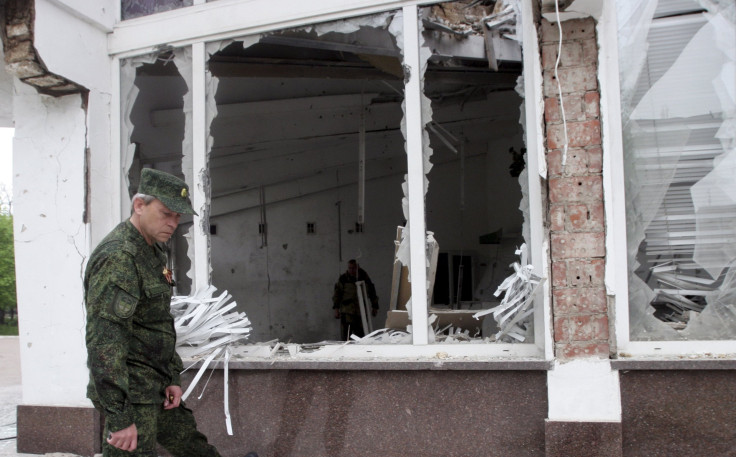Ukraine Crisis Update: Separatists, Government Forces Exchange Artillery Fire, Threatening Uneasy Truce

Ukrainian government forces and pro-Russian separatists exchanged artillery fire in contested Eastern Ukraine this weekend in the most pronounced military escalation since the two sides reached a ceasefire agreement in February. The renewed clashes cast doubt over the truce’s long-term viability in a conflict that has killed more than 6,000 people and displaced hundreds of thousands of civilians since it began in April 2014.
At least one Ukrainian soldier was killed and several others wounded within the last 24 hours, Ukraine military spokesman Andriy Lysenko said Sunday at a press conference, according to Agence France-Presse. An Eastern Ukrainian civilian was also killed when rebels shelled a government checkpoint near rebel-occupied Donetsk, one of 16 such attacks in the last day, he added.
Ukrainian government forces reportedly shelled Donetsk, wounding six separatists, AFP reports, citing a rebel website. The shellings led one rebel leader to declare separatist forces could once again pursue open warfare, in direct violation of the ceasefire.
At least eight Ukrainian soldiers have been killed and dozens more wounded in renewed fighting over the past week, the Guardian reports. Clashes were at their most intense near the village of Shyrokene, which is coveted by both sides for its port, according to the Organization for Security and Cooperation in Europe, a watchdog group active in the region.
The withdrawal of tanks and heavy artillery from the conflict’s front lines was a key aspect of February’s French and German-brokered peace agreement in Minsk. But both sides appear to have resumed use of the prohibited weapons in recent days.
The United States, the European Union and the NATO military alliance have long accused Russia of providing direct support to separatist rebels on both sides of the Eastern Ukraine border. Moscow has denied having a direct role in the conflict. Gen. Phillip Breedlove, NATO’s supreme commander, said Thursday that Russian forces may have used the relative peace brought on by the ceasefire to consolidate territory gains and regroup for a new attack.
“Many of their actions are consistent with preparations for another offensive,” Breedlove said at a hearing, according to Reuters.
© Copyright IBTimes 2024. All rights reserved.












